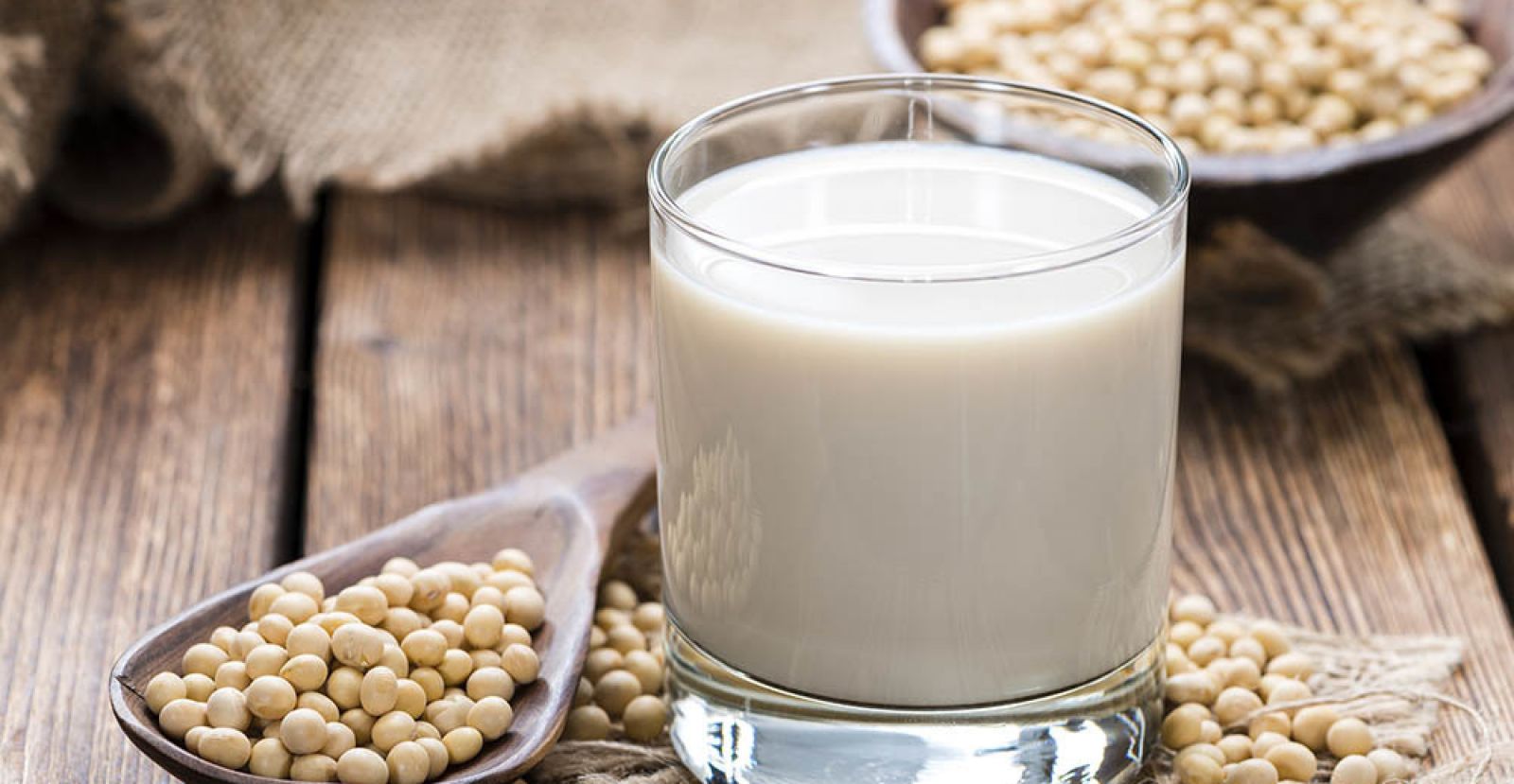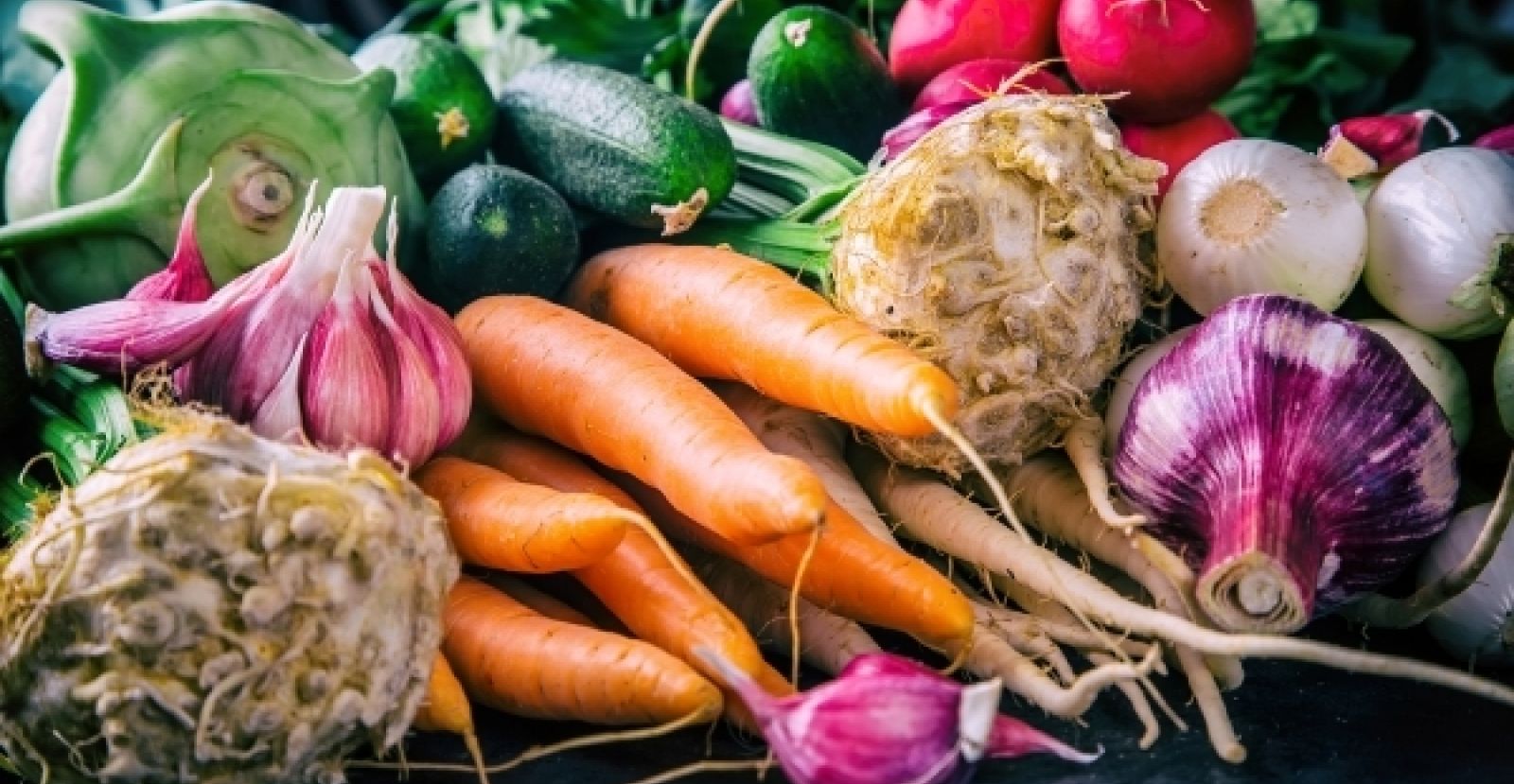Foods for menopause
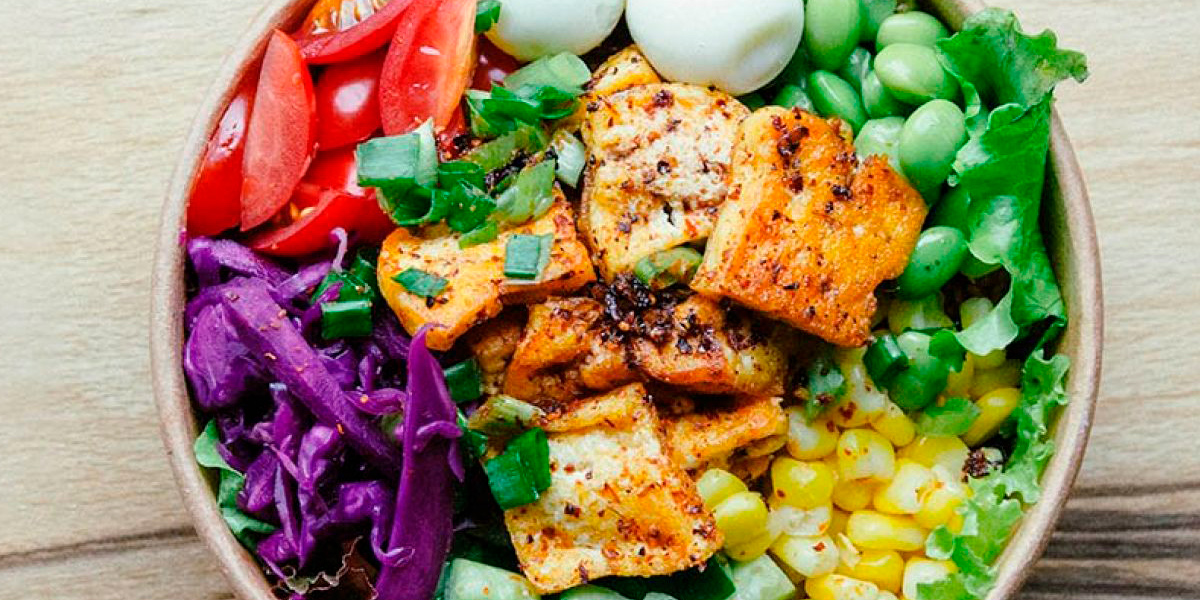
It sounds too good to be true – but are there particular foods or dietary changes that can help improve the symptoms of menopause? We speak to Jean Hailes naturopath Sandra Villella to find out.
First things first: what is menopause?
Menopause is the final menstrual period – and it’s a natural part of life. The average age for women in Australia to reach menopause is 51 or 52 years, but anytime from 45 to 55 years is common.
Symptoms of menopause can be physical, mental and emotional, and they can be wide-ranging. Common ones include hot flushes, night sweats, joint and muscles aches, vaginal dryness and fatigue. No two women experience menopause the same way.
A lucky one in five women will cruise through without experiencing any symptoms. Another one in five will have symptoms so severe that they significantly interfere with their daily life. However, for three out of five women, the symptoms of menopause are mild to moderate.
In spite of attention-grabbing headlines, we know that MHT (menopausal hormone therapy, formerly known as HRT, hormone replacement therapy) is a safe and effective treatment for bothersome menopausal symptoms for most women – read more on that here – but if your symptoms are mild and manageable without medication, or if MHT is not recommended for you, can food help?
CLEARING UP THE CONFUSION OF SOY
When it comes to menopause and diet, a particularly important food group is the phytoestrogens. And the most well-known member of the group is soy.
Jean Hailes naturopath Sandra Villella says many people mistakenly believe that eating phytoestrogens and soy can have harmful effects on their hormonal health.
“There’s a lot of misinformation online and a lot of confusion in the general population about the safety of soy with regards to breast cancer and breast cancer risk,” says Ms Villella.
“However, the research overall has shown that eating whole soy foods such as tofu and tempeh in amounts similar to traditional Asian diets is safe.
“And it’s not only safe, the research also shows that eating soy in this way actually reduces the risk of breast cancer – especially if consumed regularly before puberty – and does not increase the risk of breast cancer recurrence in breast cancer survivors.”
BREAKING IT DOWN
So let’s start off with the basics and learn about phytoestrogens.
Phytoestrogen means a plant-based oestrogen (phyto = plant-based). Oestrogen is one of the main female sex hormones, and the one that declines during menopause.
Phytoestrogens have a similar chemical structure to our own natural oestrogen. So when they are eaten, they can also behave in similar ways to oestrogen. Since our own oestrogen levels fall dramatically in menopause – causing the bothersome symptoms – this is where eating phytoestrogens may help.
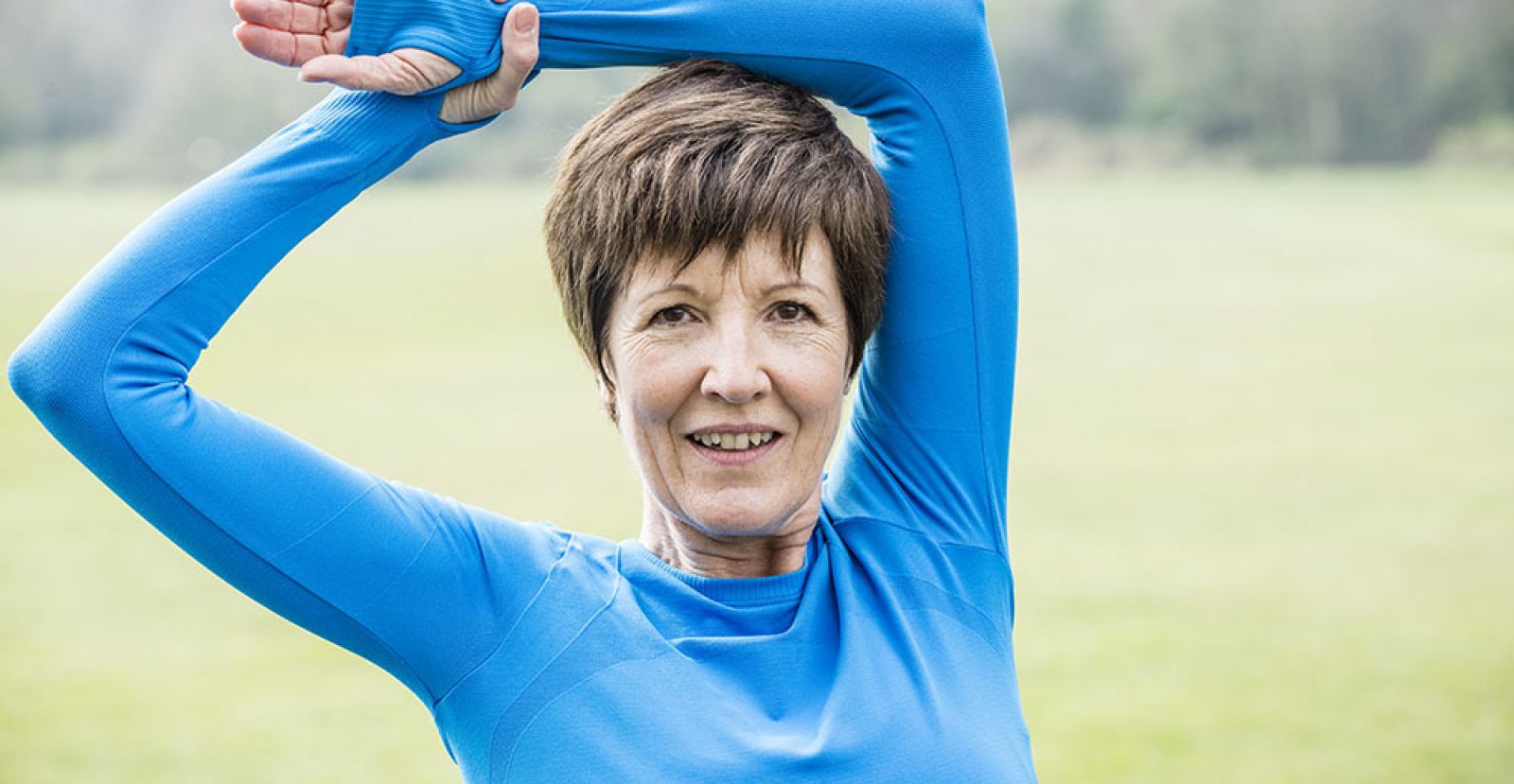
HERE COMES THE ‘BUT’
It’s important to know that phytoestrogens may help to ease menopausal symptoms in only one in three women. For the remaining two in three women, they may not see relief of symptoms. Why only one in three?
Ms Villella says it is due to the different gut bacteria people have. “Only about one in three women have the particular type of gut bacteria that can turn the phytoestrogen in soy into a stronger and more useable form, called equol,” she says.
And how do you know if you’re the one in three women who might benefit? Ms Villella says it’s simply a matter of trying it out, by eating good sources of phytoestrogens daily for at least 3-4 weeks, in what is called a ‘therapeutic dose’.
"I usually suggest to women to change their latte to soy milk [preferably calcium-enriched], have soy milk on their cereal, and try 200g of tofu or 100g of tempeh in a stir-fry,” she says.
“Or two slices of my phytoestrogen loaf [pictured below] per day is roughly the therapeutic dose.” Get the recipe.
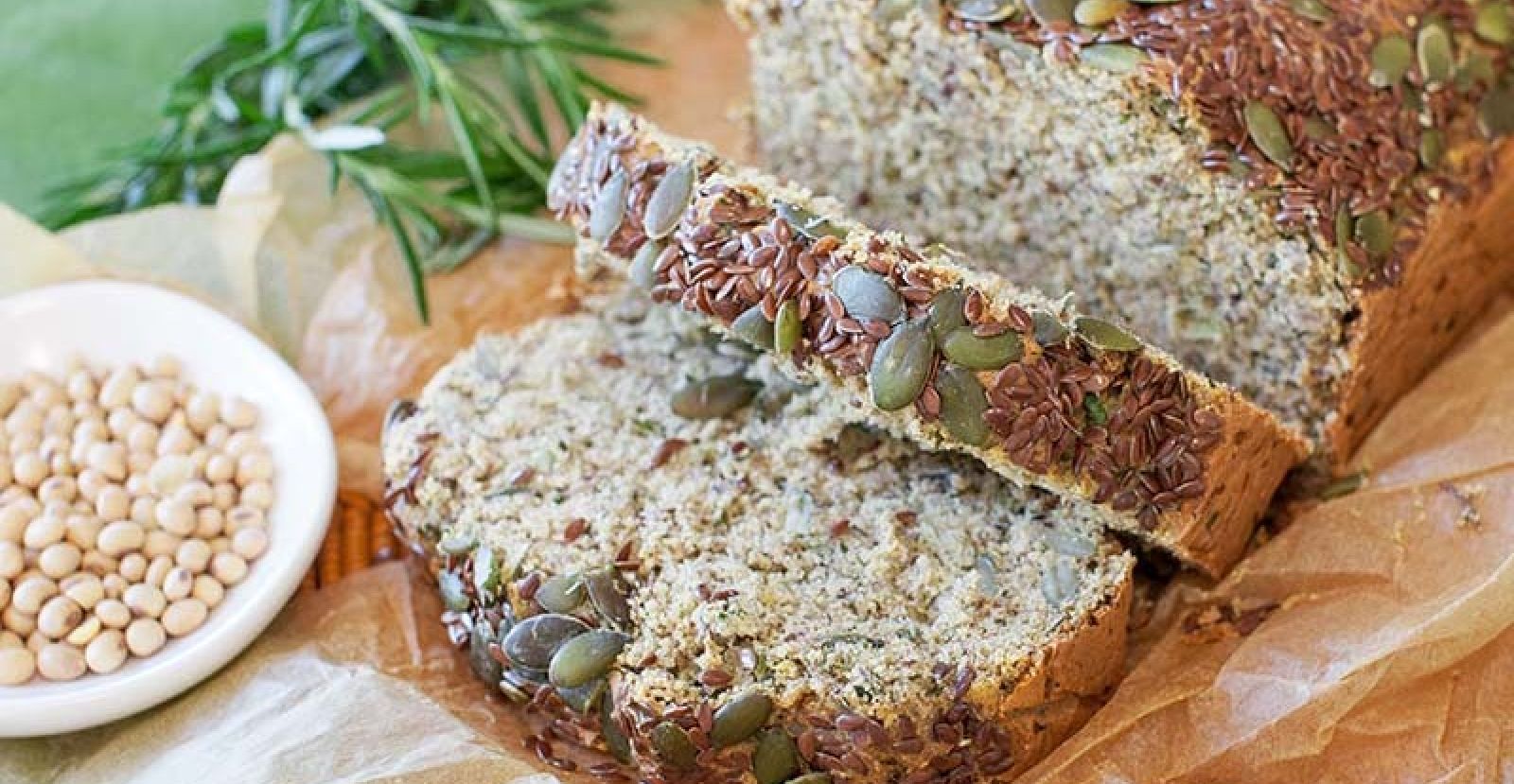
AN IMPORTANT NOTE
With these potential benefits in mind, it might seem tempting to try a short-cut and take a soy/phytoestrogen supplement, rather than dealing with the food. Not so, cautions Ms Villella.
“Particular care needs to be taken with the highly processed soy products and supplements,” she says. “When isolated from the rest of the food, soy ingredients, such as soy protein isolates and supplements, may behave differently and have different effects on hormonal health. Sticking to the whole soy foods that are common in many traditional Asian diets is best; tofu, tempeh, and soy milk made with whole soy beans.”
NOT ONLY SOY
There are three different types of phytoestrogens:
- isoflavones – which include soy and other legumes such as chickpeas and beans
- coumestans – found in sprouted foods, such as alfalfa, sprouted mung beans and soy sprouts
- lignans – found in linseed (also known as flaxseed), grains and vegetables.
BONUS BENEFITS
Ms Villella says that even if you don’t have the “magic” gut bacteria strain, phytoestrogen foods provide wonderful nutritional benefits beyond easing menopausal symptoms – they are plant foods, after all!
Whole soy foods are a complete plant-based protein, also contain calcium, and can be helpful in lowering LDL cholesterol (also known as ‘bad’ cholesterol).
Foods such as legumes, linseeds, grains and vegetables are rich in fibre that will nourish your gut health, and sprouts provide a good source of minerals and vitamins.
FOODS TO AVOID
Just as there are foods that may help us through menopause, there are foods that may make menopausal symptoms worse. Some women find that reducing their intake of caffeine, alcohol and spicy foods reduces their hot flushes. Read more.
AIM FOR HEALTHY ON THE WHOLE
When it comes to menopause and food, Ms Villella says it’s vital that women don’t overlook the importance of a healthy diet in general.
“Women who try to make their lifestyle as healthy as they can appear to have fewer menopausal symptoms, and those symptoms are less severe,” she says. “Also, women who are overweight may have more hot flushes than women of a healthy weight.
“We know focusing your diet on mainly whole foods such as vegetables, fruits, whole grains, nuts, seeds and legumes, with healthy protein choices will set you up for the next third of your life, by decreasing the risk of chronic diseases associated with ageing."
Find out how menopause may affect your life and what the Canberra Menopause Centre can do for you.
Based at SHFPACT, the Canberra Menopause Centre is a dedicated service for those seeking information, support and medical management of menopause symptoms. Menopause is the stage of life when periods cease. This occurs when the ovaries are no longer producing eggs, and is a natural life event. Menopause has three stages: perimenopause, menopause and post-menopause.
BOOK YOUR APPOINTMENT via Hotdoc TODAY.
Anyone can make an appointment to come and see us. You may self-refer to the service or request a referral by your treating GP. We request that you complete a medical information questionnaire prior to attending the initial doctor’s appointment. To ensure that our doctors with a special interest in menopause have the opportunity to discuss your concerns, we offer longer appointments. For more details contact us during office hours on 02 6247 3077 or email This email address is being protected from spambots. You need JavaScript enabled to view it.
Read on about other ways to manage the symptoms of menopause on the Jean Hailes website.

